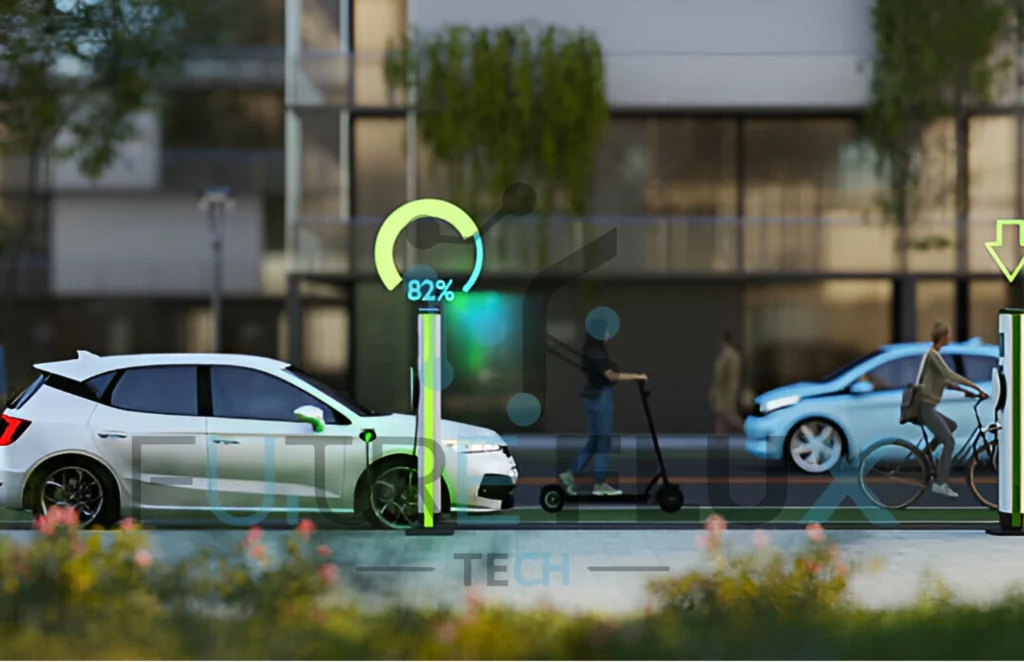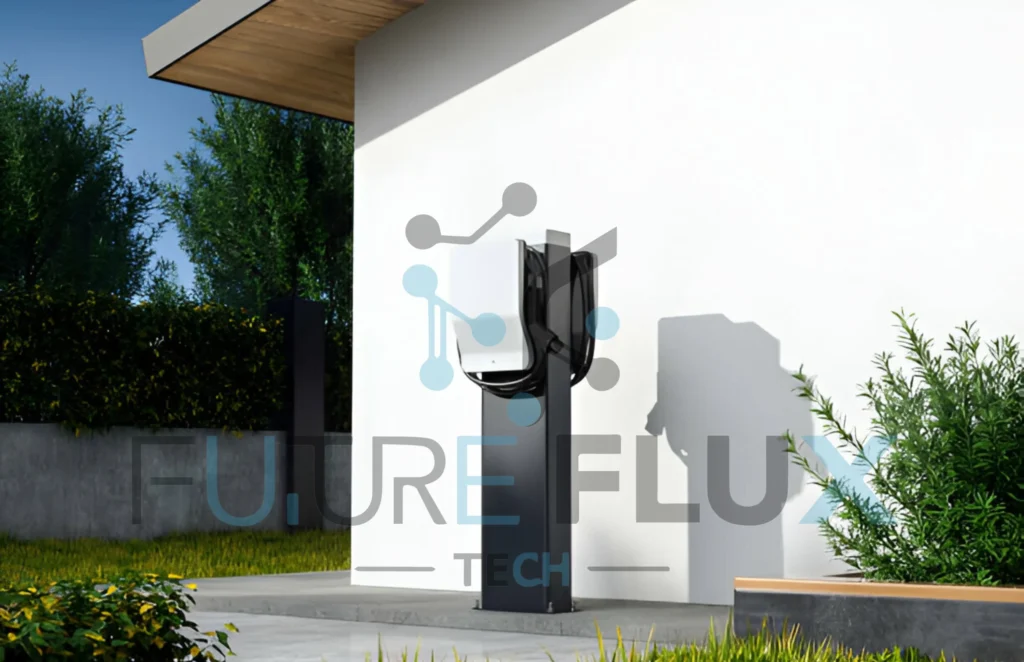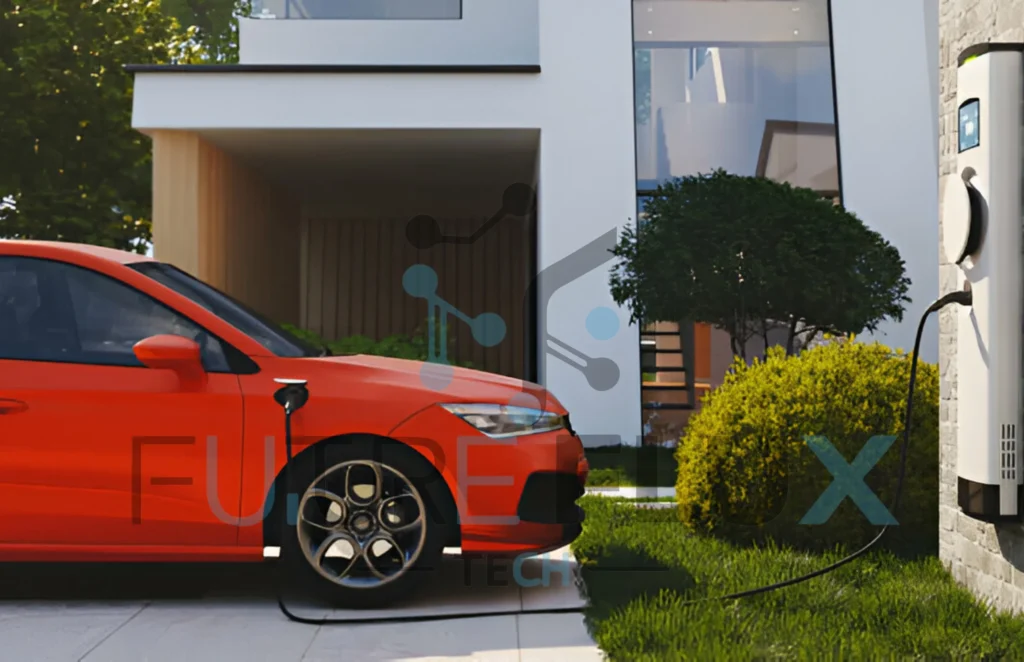The rise in fuel and gas prices has influenced the way we travel. However, EV owners stay unaffected as electric vehicles run on electricity. The question is, how much does it cost to charge an electric car? Will it hurt your pocket? Can you reduce the charging costs? The answer is relatively simple. EV uses electric motors to convert electrical energy into mechanical energy.
Moreover, it relies on an electric vehicle charging station that may be located near you. Finding renewable resources can lower the charging costs. Are you still wondering why it is so expensive to charge your EV? Let’s dive into what influences charging costs and how you can reduce them.
Table of Contents
ToggleHow much does it Cost to Charge an Electric Car at a Public Station?

Are electric motors better than traditional gas-powered vehicles? They save you from the hassle of standing at gas stations and waiting for your turn. How so? You can charge your vehicle at the Home EV charging station conveniently. However, your head may spin when you see the electricity bills next month. As an EV owner, you may face a fluctuation in charging rates. You are required to pay a monthly fee. Sometimes, you are directly charged at the charging station. However, the cost charging electric car at a public station is higher than a home station. How so? Public stations may charge you according to local electricity costs and have a 100% markup. That is why most EV owners prefer Level 2 home charger that is enough to keep their EVs running. On average, public stations may charge you $0.20 to $0.25 per kWh for level 2 charging while $0.40 to $0.60 per kWh for level 3 charging. Level 3 chargers are more common among general users. Public charging stations may offer free refills as well. “Wait, what? Did I read that right?” Yes, you certainly did. But how? Some malls and restaurants want to attract customers by offering convenience. They can very well do so through electric charger installation which can be accessed freely for a limited time. However, you must be a lucky owner to access such convenience.
How much do different Charging Stations charge per KWH?
Are electric motors better than traditional gas-powered vehicles? They save you from the hassle of standing at gas stations and waiting for your turn. How so? You can charge your vehicle conveniently at the Home EV charging station. However, your head may spin when you see the electricity bills next month. As an EV owner, you may face a fluctuation in charging rates and must pay a monthly fee. Sometimes, you are directly charged at the charging station. However, the cost of charging an electric car at a public station is higher than at a home station. How so? Public stations may charge you according to local electricity costs and have a 100% markup. That is why most EV owners prefer a Level 2 home charger that is enough to keep their EVs running. Public stations may charge you $0.20 to $0.25 per kWh for level 2 charging while $0.40 to $0.60 per kWh for level 3 charging. Level 3 chargers are more common among general users. Public charging stations may offer free refills as well. “Wait, what? Did I read that right?” Yes, you certainly did. But how? Some malls and restaurants want to attract customers by offering convenience. They can very well do so through electric charger installation, which can be accessed freely for a limited time. However, you must be lucky enough to have access to such convenience.
How much do different Charging Stations charge per KWH?
As discussed earlier, charging costs may vary depending on your location. For instance, the average charging costs at charging stations in Las Vegas can range from $10 to $15 for a full charge. However, these rates may still fluctuate depending on spikes in electricity prices. The difference in charging costs is due to government taxes and laws regarding automobile pricing. Moreover, other things can also affect EV charging costs. Likewise, the charging cost at electric car charging stations in Chicago is around $7.50 at a rate of $0.15 per kWh. This is also for a full charge. Notice how different these two rates are depending on the location. The reason could be one of the following.
1- Electricity costs
It is expected to have different electricity rates in the US. As rates fluctuate, local electricity costs can significantly influence how much it costs to charge an electric car . The US average kWh per kWh can range from $0.10 to $0.20. However, some areas may be generous enough to offer discounts that may save you some cash. Moreover, the source of electricity also affects the charging costs. Sustainable electricity sources may reduce charging fees in the future.
2- Charging rate
The charging speed can also influence the cost of charging electric car and can be divided into three levels. The level 1 chargers are the initial house chargers that may carry your EV at a 2 to 5-mile-per-hour range. Furthermore, if you want faster charging and be off to somewhere important, then using a Level 2 home charger can solve your problem. They offer a range of 12 to 60 miles per hour, significantly greater than level 1 chargers. DC chargers can quickly provide up to 1000 miles per hour.
3- Battery size
The size of the battery is directly related to the amount of energy it can store. The larger the battery, the higher the Public EV charging station rates. How so? The answer is quite simple. Larger batteries may need more time and energy to be fully charged. However, this may vary from model to model. Some models have a battery capacity of 30 kWh, while others may have more than 100 kWh. The battery age may also influence the time it takes to charge. You may think, “The electric car charging stations near me are charging me more than usual.” It’s more of a battery problem than a station problem.
4- Tax policies
The same old tax policies functioning for a long time also affect the cost of charging your electric car. Previously, EV owners did not have to pay taxes, but the rules have changed. Furthermore, there’s one thing you should know about the kWh tax. Besides the apparent Electric car charging costs by state, station holders and EV owners may have to pay taxes based on the usage per kWh. The owners must carefully read the billing receipts obtained from the stations.
Are Home Charging Stations Reliable for EV Charging?

Sometimes, the cost of something is higher due to its reliability. You may think charging at public stations is expensive, but if you look closely and search for some ‘electric car charging stations near me’, you may easily find the answer. Home charging can be convenient, but it is not practical for long trips. You may end up stranded in an unknown place and have to look for a charging station. However, ignoring fluctuations in Electric car charging costs by state, home charging is safer for several reasons. Why is that? It is installed with safety mechanisms that are weather-resistant and impact-proof.
Furthermore, home chargers can bear high energy loads effectively. All these features are free, so they sound fantastic. A Level 2 home charger lets you charge four times faster than a Level 1 charger. On average, home charging can take up to 40 hours. This can be a problem, especially when running late for an important event.
What Factors Influence Home EV Charger Installation costs?

Whether you prefer a home EV charging station or a public one, your EV may be charged differently. Why is that? Do you spend more or less? Let’s look at some factors that affect home EV charger installation costs.
1- Station type
When installing a home charging station, you face a lot of challenges. You may need to learn the right charger type for your house and pay more than required. If you want a basic charger, you can install a level 1 charger. However, if you are a hustler and bustler in Las Vegas, the city that never sleeps, installing level 2 charging stations in Las Vegas can be the ideal option. Level 2 chargers can charge your cars faster and take you to longer distances. More expensive options might include DC chargers that are even faster than level 2 chargers.
2- Inspection fee
Installing charging stations requires a permit from the designated authorities. You must pay a permit fee based on your location. Let’s say you are living in Chicago. Unlike the small charging costs at electric car charging stations in Chicago, the permit fees can range from $500 to $2500. Moreover, labour costs are a significant part of installing a charger at home. You cannot install a charger on your own. Hence, hiring professionals can be expensive as they may charge you $50 to $150 per hour.
3- Location size
The location of the charging setup may influence how much it costs to charge an electric car . How so? A garage is the ideal place to have an EV charger setup. You do not have to worry about weather conditions or complex wiring. Unlike a garage, an outdoor setup can be costly due to safety concerns and significantly increase the installation costs. Moreover, the distance from the electric panel to the charging stations also influences electric charger installation costs.
How to reduce EV charging costs?
EV charging costs are not affected by fuel or gas prices. Electricity is cheap. However, it would help if you managed the costs of maintaining your EV in good shape. Reducing charging costs can significantly save a lot of money. Despite the fluctuation in Electric car charging costs by state, there are ways to reduce charging costs. The most important thing is to find reliable and affordable providers offering pocket-friendly tariffs with off-peak rates.
What’s more? Using smart apps to track your EV charging routine is a great way to know your daily expenditure. For instance, check the time when you start charging and how long it takes to reach a full charge.
Conclusion
Electric cars are cost-effective, but charging them may be expensive. We have discussed how much it cost to charge an electric vehicle and how to reduce charging costs. Moreover, charging stations charge you per kWh usage. The more kWh usage you have, the more you have to refill your EV. A great way to save money is to start charging your car home. More than 80% of EV owners charge their vehicles at home. However, a Home EV charging station can be quite costly to install, with added labour costs and permit fees. Keeping track of your charging routine may help you balance your finances better.
Do electric cars run faster than gas cars? Are EV chargers universal? Learn more about electric vehicles by visiting our blog.
I’m Waqas, an electric vehicle enthusiast and tech writer with over 6 years of experience covering the EV industry. I write in-depth articles, comparisons, and reviews to help readers understand the fast-evolving world of electric mobility. From battery technology to EV launches and charging trends, I aim to make complex EV topics simple, engaging, and informative for everyday drivers and curious readers alike.






One Response